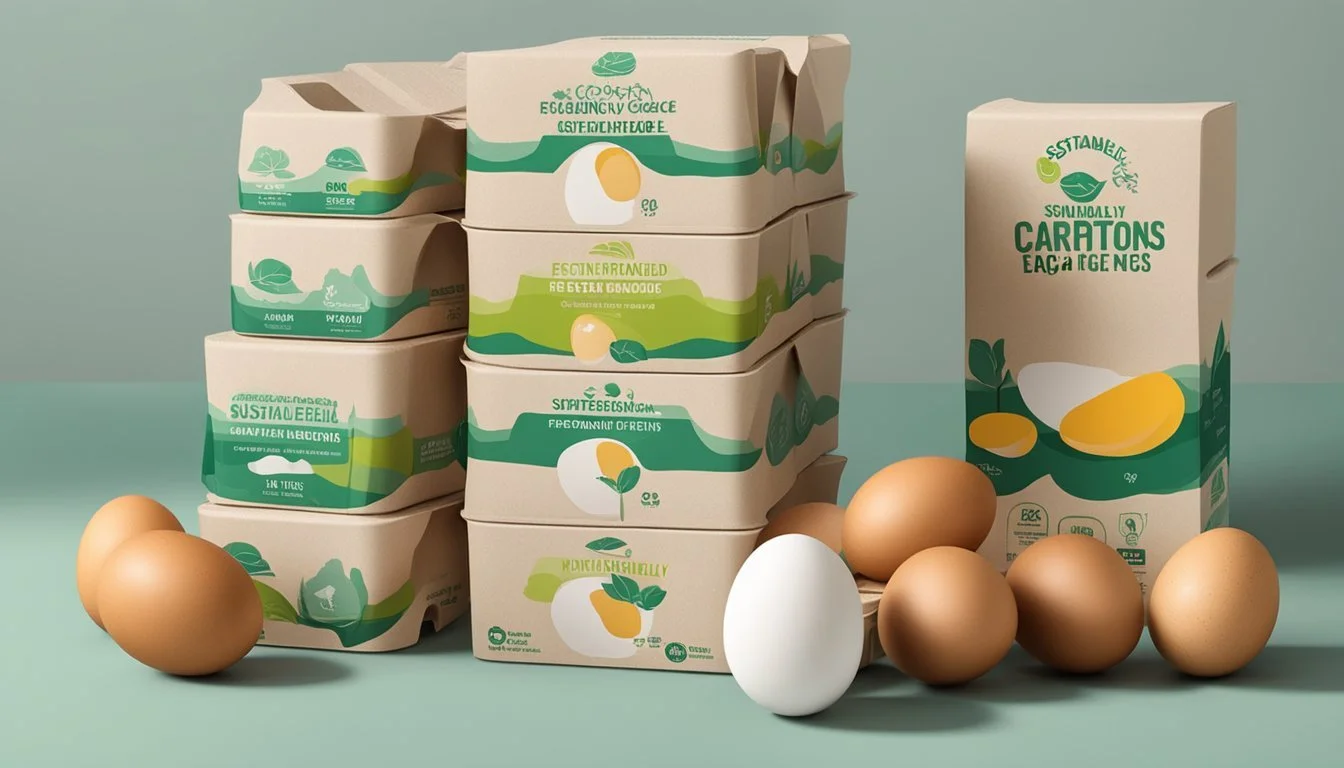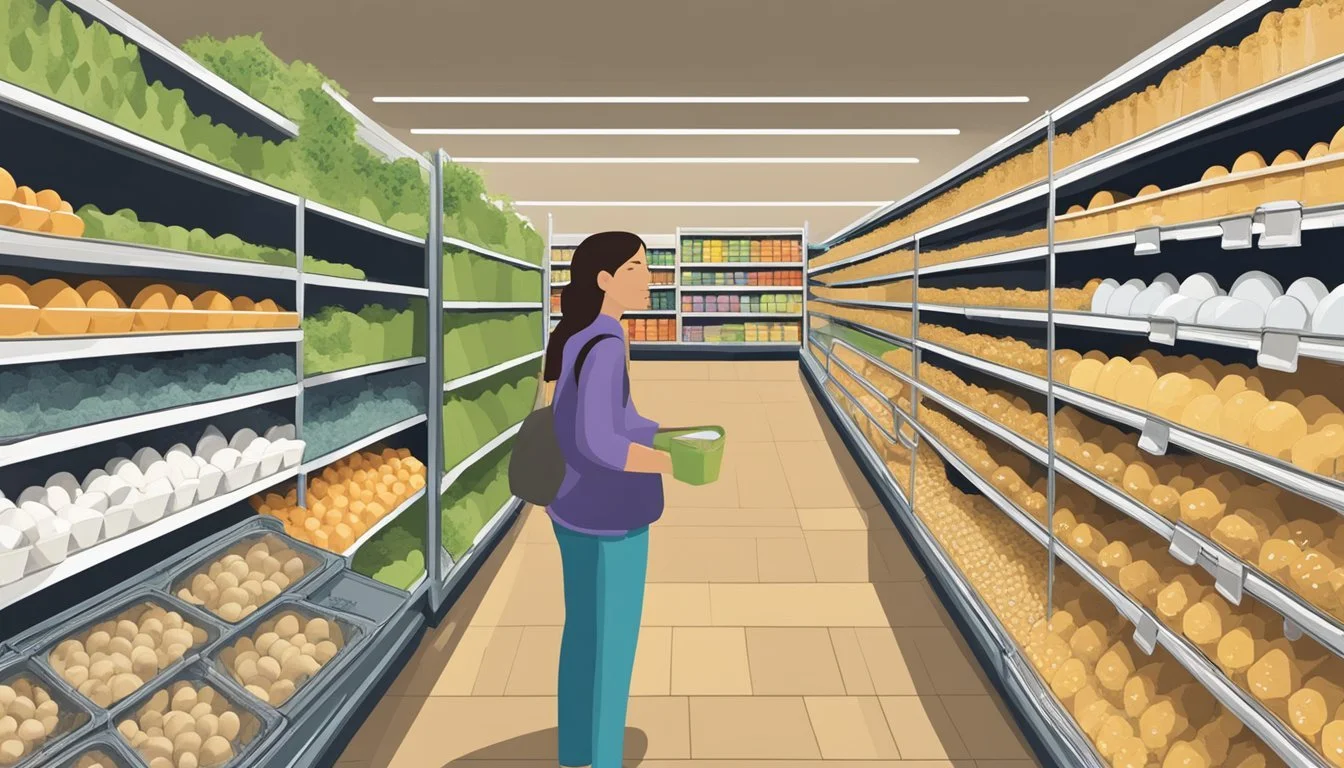The Ultimate Guide to Reusable Egg Cartons
Embracing Eco-Friendly Solutions in Egg Packaging
In the wake of growing environmental concerns and a push for more sustainable living practices, consumers and manufacturers alike are turning their attention to the impact of product packaging. Egg cartons, widely used across the globe, traditionally come in plastic or foam options, which pose significant environmental hazards due to their non-biodegradable nature and difficulty in recycling. Sustainable packaging solutions are no longer a preference but a necessity, and reusable egg cartons have emerged as a key player in this transformation. They are typically made from recycled materials or biodegradable fibers, aligning with the ethos of a circular economy and reflecting a commitment to ecological responsibility.
Reusable egg cartons offer a sustainable alternative, tackling the challenges of waste reduction and recyclability head-on. Implementing durable, eco-friendly materials extends the lifecycle of the cartons, resulting in fewer resources expended over time. This shift not only helps reduce the environmental footprint but also resonates with the rising consumer demand for products that support sustainability goals. The benefits of reusable egg cartons are not limited to environmental advantages; they also make economic sense. Although the initial investment may be higher, the long-term savings from reduced waste management costs and the repeated use of the cartons can compensate for the upfront expense.
By opting for reusable egg cartons, consumers are actively participating in the reduction of plastic waste and are supporting sustainable packaging initiatives. Businesses are responding to this demand by innovating in the design and materials used for egg cartons, offering compostable, recyclable, and reusable options. These changes reflect a broader trend in sustainable consumerism, signifying a collective movement towards protecting the environment for future generations.
The Benefits of Reusable Egg Cartons
Reusable egg cartons offer numerous advantages, from their positive environmental impact to their robust design. They contribute significantly to sustainable packaging solutions, reducing the carbon footprint associated with egg production and distribution.
Environmental Impact of Reusable Egg Cartons
Reusable egg cartons made from recycled plastic or other biodegradable materials lessen the reliance on single-use packaging. They play a crucial role in the circular economy by promoting material reusability which helps in diminishing landfill waste. Over time, this choice can lead to considerable decreases in plastic pollution and a lower carbon footprint for the egg industry.
The Durability and Design of Reusable Egg Cartons
Egg cartons created for repeated use boast enhanced durability over their single-use counterparts. Their design typically incorporates durable materials that can withstand regular handling and cleaning. This durability translates to a reduction in the frequency of replacement, further underscoring their role in sustainable packaging strategies.
Sustainability in the Supply Chain
Incorporating reusable packaging in the egg supply chain presents a shift towards more sustainable practices. Companies that adopt reusable egg cartons often see an improvement in their supply chain's eco-friendliness. As these cartons are made of recycled materials, they support resource conservation and lower production costs related to raw material sourcing.
Types of Reusable Egg Cartons
Reusable egg cartons are designed to minimize waste and promote sustainability in egg packaging. They are typically made from sturdy materials, suitable for multiple uses, and come in various forms to cater to different eco-friendly preferences.
Plastic Egg Cartons
Plastic egg cartons are usually produced from BPA-free, recycled materials, making them a durable option for multiple uses. They often feature a clear design for easy visibility of the eggs and can be cleaned with ease. Since they are made from recycled plastic, these egg cartons contribute to a circular economy, extending the lifecycle of plastic products.
Advantages:
Durability for long-term use
Easy to clean and maintain
Biodegradable Material Alternatives
Egg cartons made from biodegradable materials such as recycled paper offer an environmentally responsible option. These cartons can be compostable, breaking down naturally in a composting environment without leaving any toxic residue. While not as sturdy as plastic, they still provide a viable solution for consumers seeking sustainable egg packaging alternatives.
Attributes:
Compostability ensures eco-friendly disposal
Made with biodegradable materials, reducing environmental impact
Emerging Sustainable Innovations
The market has seen a surge in innovative designs for reusable egg cartons, utilizing a range of sustainable materials. These innovations may include cartons created from plant fibers or other renewable materials that are both biodegradable and sturdy. They represent the evolving commitment to sustainability in packaging, offering a balance between functionality and environmental consciousness.
Key Developments:
Use of renewable, eco-friendly resources
Designs focusing on longevity and biodegradability
Impact on Consumer Behavior
The shift towards sustainable egg packaging is directly influencing consumer behavior, with a focus on ecological impact and long-term practicality. Consumers are increasingly considering the sustainability of their purchases, much like the widespread adaptation of reusable shopping bags.
Adoption and Perception
Consumers are gradually adopting reusable egg cartons, influenced by the positive perception of sustainable packaging. Sustainable innovation in the form of reusable cartons aligns with a growing environmental consciousness. They appreciate the reduced waste and recognize the advantages of durable materials that are often made from recycled plastic or biodegradable fibers.
Reusable Shopping Bags as a Model
The success of reusable shopping bags sets a precedent for reusable egg cartons. Consumers adapted to bringing their own bags to stores, and similar behavior is expected as carton take back programs and recycling stations become more prevalent. This model showcases a behavioral shift, indicating potential acceptance and routine integration of reusable egg cartons into shopping habits.
Consumer Responsibility and Engagement
With the introduction of reusable packaging, there is an increased call for consumer responsibility and engagement. Many recognize their role in the life cycle of packaging, participating in carton take-back programs and proper recycling practices. Engaged consumers often seek out brands with a strong environmental ethos, suggesting a demand for corporate responsibility that mirrors their own values.
The Business Case for Reusing Egg Cartons
When considering the shift to reusable egg cartons, businesses weigh the potential cost savings against the initial investment, assess the performance of pilot programs, and leverage branding opportunities.
Cost-Benefit Analysis
Reusable egg cartons represent a significant shift in packaging logistics. By investing in sturdier materials, companies can extend the lifespan of each carton, thus, the number of uses per carton increases exponentially. This investment in durability may lead to a higher initial cost; however, the long-term savings in material and waste disposal fees can be substantial. The transition to reusable cartons may also streamline the supply chain, reducing the frequency and cost of ordering new packaging.
Initial Investment: Higher due to durable materials.
Long-Term Savings: Reduced expenditure on material costs and waste management.
Case Studies: Pilot Programs and Retailer Initiatives
Pilot programs offer a practical assessment of the feasibility of reusable egg cartons. Case studies reveal that major retailers have successfully implemented these programs, showcasing a reduction in waste and enhanced efficiency in their supply chains. For instance, a pilot may demonstrate that reusable cartons can be sanitized and redistributed at a fraction of the cost of producing new ones, solidifying the practicality of the model.
Major Retailers: Implementing pilot programs to test efficiency.
Logistics Efficiencies: Reusable options can be cleaned and reused, minimizing the need for constant production.
Branding and Marketing Advantages
Reusable egg cartons provide customizable packaging solutions that contribute to a company’s branding strategy. A company can imprint its logo and design onto the reusable carton, which not only serves as a marketing tool but also promotes the company's commitment to sustainability. This eco-friendly approach can attract a customer base that is increasingly environmentally conscious, offering a competitive edge in the marketplace.
Customizable Packaging: Enhances brand recognition and emphasizes environmental values.
Branding: Strengthens customer loyalty and attracts eco-conscious consumers.
Global Trends in Sustainable Egg Packaging
The shift towards sustainable egg packaging reflects a combination of regulatory action and market-driven innovation, leading to the introduction of new materials and designs across the globe.
Legislation and Policies
Governments worldwide are implementing legislation to address the environmental impact of packaging materials. In the U.S., there is an increasing expectation for the egg industry to transition to eco-friendly packaging options ahead of potential state-level bans on polystyrene foam packaging. This proactivity follows global patterns where countries like Brazil and members of the European Union are setting ambitious targets for waste reduction, which includes stipulations for packaging materials.
International Approaches to Egg Carton Reuse
Different nations have adopted varying approaches to make egg packaging more sustainable. Reusable egg cartons have become a significant trend, encouraging consumers to reduce waste. These cartons are often made from materials like recycled plastic or biodegradable fibers. In some regions, consumers may return cartons to be refilled, promoting a circular economy model where packaging life-cycles are extended.
Innovations and Developments Worldwide
Companies like Huhtamaki, a key player in the global packaging industry, have developed products such as Smilepack, which are 100% plastic-free egg cartons designed specifically for the U.S. market. These innovations not only provide sustainable alternatives to traditional packaging but also offer functional benefits, such as enhanced protection for the eggs during transport. Active research and development efforts continue worldwide to create egg packaging that balances sustainability with consumer convenience and product safety.
Practical Guide to Reusing Egg Cartons
Reusable egg cartons offer an eco-friendly packaging alternative that contributes to reducing waste. This guide focuses on the essentials for maintaining these containers to ensure their longevity in use.
Cleaning Best Practices
Materials Needed:
Warm water
Mild dish soap
Soft brush or sponge
Towel
Steps:
Empty the carton: Ensure all egg residue is removed.
Prepare a cleaning solution: Mix warm water with a squirt of mild dish soap.
Gently scrub: Use a soft brush or sponge to clean the carton, paying extra attention to crevices where bacteria can hide.
Rinse thoroughly: Remove all soap with clean water.
Dry completely: Pat down with a towel and air-dry.
Storage and Maintenance
Best Practices:
Dry Storage: Store reusable egg cartons in a dry area to prevent mold growth and protect the material integrity.
Stacking: When not in use, stack the cartons to save space, ensuring they are completely dry to avoid sticking.
Regular Checks: Inspect cartons for wear and tear to decide when replacement is necessary.
How to Opt-In to Reuse Programs
Research Local Options: Look for grocery stores or farms that offer a take back program.
Understand the Terms: Some programs require the cartons to be washed at home before returning; others will handle the cleaning.
Participation: Engage with the program by returning your reusable egg cartons on your next visit to the store or farm.
By adhering to these practices, users can maximize the lifespan of their durable, reusable egg cartons, effectively supporting environmental sustainability efforts.
Challenges in the Shift Toward Reusable Egg Cartons
The transition to reusable egg cartons, while beneficial for sustainability, confronts several practical obstacles. These challenges encompass logistical adaptations, consumer behavior, and economic implications, each affecting the initiative's effectiveness and adoption.
Logistical and Operational Hurdles
Implementing reusable egg cartons introduces complexities in logistics and operations for producers and retailers. The objects of sustainability—recyclable and durable materials—must still ensure adequate protection for eggs during transport. Reusable cartons necessitate robust design to withstand the pressures of stacking and loading. Additionally, the shift may require rethinking outer crates that transport bulk cartons, as heavier reusable options could impact the ease of retrieving and handling products. Systems for collecting, sanitizing, and redistributing these cartons also need to be established, which involves significant alterations to current supply chain practices.
Consumer Resistance and Convenience Factor
Consumers accustomed to single-use containers may resist the change to reusable egg cartons due to perceived inconvenience. The success of reusable cartons relies on consumers returning them for reuse. This process contrasts with the ease of discarding recyclable single-use cartons. There is a need to incentivize the return of these containers, or to establish convenient drop-off points, without which consumer participation may falter.
Economic and Scalability Concerns
From an economic standpoint, the higher upfront costs of reusable cartons compared to single-use options can be a deterrent for both businesses and consumers. While long-term savings and environmental benefits are significant, initial investment and the longer ROI (Return on Investment) timeline can impede widespread adoption. Scaling this initiative to meet mass-market demand also presents a challenge, requiring substantial investment in facilities for the cleaning and redistribution of cartons, which might strain small to medium enterprises more than larger corporations.
Conclusion
In assessing reusable egg cartons, their contributions to sustainability are clear. These cartons are typically crafted from recycled materials or plant fibers, making them a beneficial choice for those looking to recycle and minimize environmental impact. The materials chosen for such packaging solutions not only support a circular economy but also signal a commitment to environmental responsibility.
Reusable egg cartons offer multiple uses due to their durable construction, which stands in contrast to single-use options. By investing in these reusable containers, consumers can diminish the frequency of purchases and the volume of waste generated. It is a pragmatic approach that can lead to long-term economic benefits despite the higher initial cost.
Further, embracing sustainability in egg packaging mirrors a wider shift in consumer behavior towards eco-friendly products. As the adoption of reusable cartons increases, they may become as commonplace as reusable shopping bags in promoting environmental stewardship.
In summary, the move to reusable egg cartons is a step forward in sustainable packaging. It harnesses the effectiveness of recycled materials, supports the reduction of waste, and aligns with progressive environmental goals. Consumers and producers alike can feel confident in the positive impact of transitioning to eco-friendly egg packaging.







